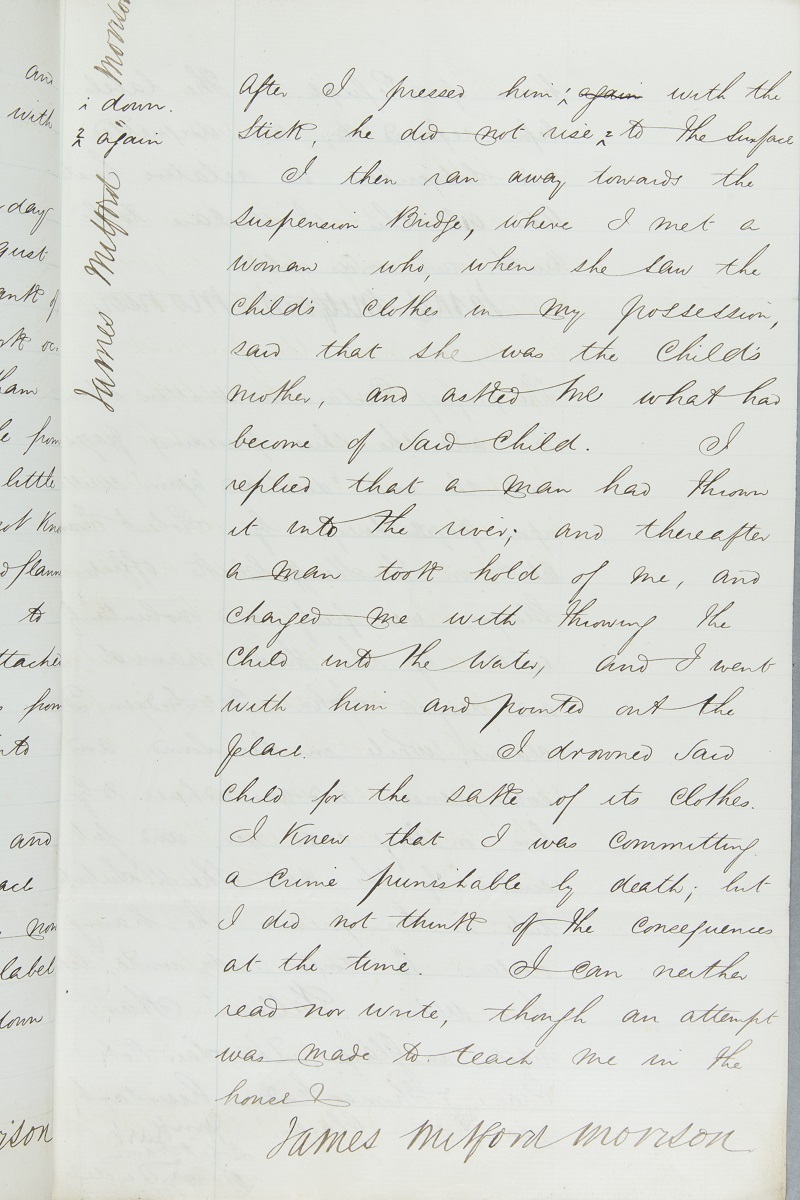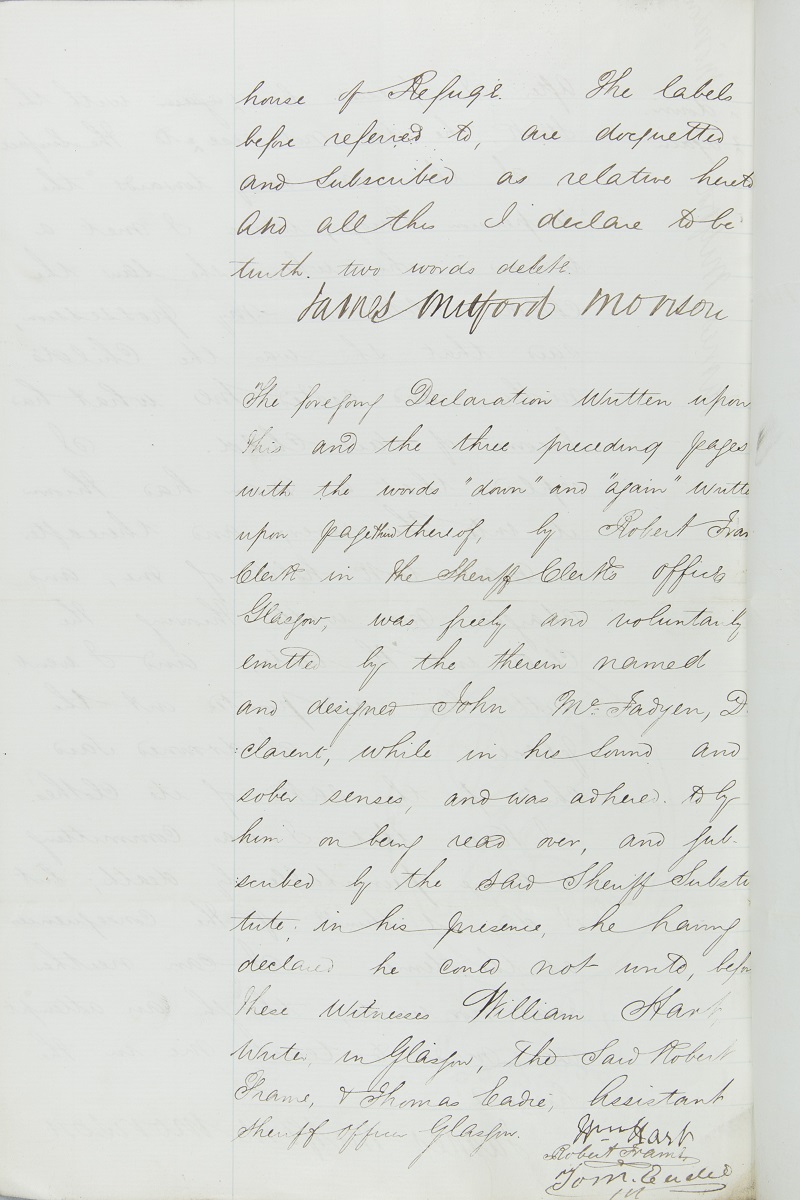
John McFadyen
Admitted 1872. Murder and theft
John was convicted of drowning a two-year-old boy called Alexander Shields in the river Clyde at Glasgow. He had abducted 'Sandy' from the street while the boy was waiting to greet his father's return from work, stripped him and threw him in the water, holding him down with a stick. The child's distraught mother caught him running away with her son's clothes under his arm.
John stated matter-of-factly: 'I drowned said child for the sake of its clothes.'
The jury found him guilty of murder and theft, recommending mercy because of his 'weakness of intellect...almost completely an imbecile'. The judge decided otherwise and sentenced him to hang in January 1861, subsequently commuted to penal servitude for life.
Victorians favoured institutions as a cure for social problems. John had spent the years 1855 to 1860 in the House of Refuge (Reformatory Institution), Duke Street, after his first conviction for theft (also stealing clothes from a child). The chaplain-superintendent described him as 'mentally, morally & physically stunted or undeveloped'. Despite three hours of lessons a day, he could only read a little, hardly do any arithmetic, and was unable to write. His memory was poor, as was his impulse control. 'A very slight temptation to ordinary minds would appear to him a strong temptation.'
John was aged 20 when he committed the murder in 1860, but doctors judged he had a mental age of just six. He was barely 4 feet 9 inches (1.5m) tall and weighed 7 stone (45kg). Born in Belfast, John was transferred from Broadmoor to Perth in 1872.
Awaiting trial, a cell-mate for nine weeks spoke of McFadyen's mental state. 'He was a very childish companion. Very mischievous, taking away anything that was left, singing all day, constant talking, jumping on bed occasionally, singing snatches of songs. In talking he jumps from one subject to another. When speaking about his dinner he would jump to what happened at Reformatory School. He is passionate, very irritable, cannot read; and when I read he interrupted me...He is a great mimic, and the least thing makes him laugh immoderately. I do not think he understood his position. I have tried to make him sensible of it, and tried to make him pray, but he did not understand what I meant and asked if praying would bring him back to life. I had told him he might be hanged. When I told him how people were hanged, he laughed at it and said it would be all one to the grave digger. I think him of unsound mind.'
'Form of insanity: imbecility'. Victorians classed intellectual disabilities as either imbecility or idiocy; the terms had both legal and medical meaning, the former involving less extensive incapacity. The Mental Deficiency and Lunacy (Scotland) Act 1913 was the first systematic attempt to revise traditional categories of impairment, which have been fine-tuned ever since.
Aged 50, John was unconditionally discharged from Perth Criminal Lunatic Department (CLD) in 1891.
Photograph of John McFadyen taken from the Criminal Lunatic Department Case Book
Credit: Crown copyright, NRS, HH21/48/1 page 425
Post mortem undertaken by George Macleod M.D. and James Stewart M.D. of the body of Alexander Shields, 28 August 1860
Credit: Crown copyright, NRS, JC26/1860/265
John McFadyen’s declaration, 27 August 1860, p1
Credit: Crown copyright, NRS, JC26/1860/265
John McFadyen’s declaration, 27 August 1860, p2
Credit: Crown copyright, NRS, JC26/1860/265
John McFadyen’s declaration, 27 August 1860, p3
Credit: Crown copyright, NRS, JC26/1860/265
John McFadyen’s declaration, 27 August 1860, p4
Credit: Crown copyright, NRS, JC26/1860/265
A map showing the location of Alexander Shield’s murder
Credit: Crown copyright, NRS, JC26/1860/265
A key for the plan listing where Alexander’s body was found and where John was first observed
Credit: Crown copyright, NRS, JC26/1860/265
John McFadyen. Report of medical examination, 3 December 1880 (NRS, JC26/1860/265). Voices: Calum Philp and Craig Smillie
John McFadyen. Declaration, 27 August 1860 (NRS, JC26/1860/265). Voices: Richard Burns
















